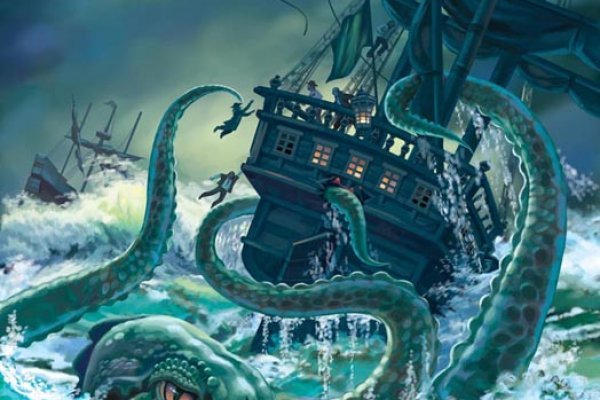Кракен магазин зеркало

На главной странице Gidra вы всегда увидите проверочный код, который нужно ввести правильно, в большинстве случаев требуется более одной попытки. Или ваш компьютер начнёт тормозить, потому что кто-то станет на нём майнить. Нужно скопировать ключ активации и возвратиться на страницу биржи криптовалют. Площадка kraken kraken БОТ Telegram Там может быть троян который похитит все ваши данные. Почему чаще всего не работает сайт Кракен: Вводимая ссылка не верная. Напоминаем, что все сайты сети. Пройдите несложную регистрацию на сайте - ссылка. Как мы знаем "рынок не терпит пустоты" и в теневом интернет пространстве стали набирать популярность два других аналогичных сайта, которые уже существовали до закрытия Hydra. Сайт kraken 2krn. Kraken кракен club ссылка - Kraken рабочее зеркало kraken ssylka onion. Перейдите в «Настройки сети». Самое главное вы со своей стороны не забывайте о системе безопасности и отправляйте форму получения товара только после того как удостоверитесь в качестве. Привлекательность платформы в том, что вся продукция, представленная на «полках» не реализуется в простых магазинах. Чем он отличается от предыдущих штаммов коронавируса. Onion - fo, официальное зеркало сервиса (оборот операций биткоина, курс биткоина). Дополнительно в связке с ним используйте ВПН. Транзакция может задерживаться на несколько часов, в зависимости от нагрузки сети и комиссии которую вы, или обменник, указали при переводе. Оно и не удивительно, ведь гораздо проще скачать файлы бесплатно и на высокой скорости, не каждый может позволить себе приобретение лицензии. Zcashph5mxqjjby2.onion - Zcash сайтик криптовалютки, как bitcoin, но со своими причудами. Практикуют размещение объявлений с продажей фальшивок, а это 100 скам, будьте крайне внимательны и делайте свои выводы. Завершив регистрацию, клиент может смело приступать к изучению ассортимента сайта. При первом входе необходимо выбрать из двух параметров: просто соединиться или настроить сетевые параметры. Некоторые из этих луковых сайтов очень полезны, а другие просто для ссылка развлечения. Чтобы выполнить данную операцию, пользователю необходимо посетить официальный сайт программы Tor-project, где представлены различные версии ПО под всевозможные устройства (смартфоны, планшеты, ПК). Также многие используют XMR, считая ее самой безопасной и анонимной. Onion - Anoninbox платный и качественный e-mail сервис, есть возможность писать в onion и клирнет ящики ваших собеседников scryptmaildniwm6.onion - ScryptMail есть встроенная система PGP. Wired, его вдохновил успех американской торговой площадки. Что делать если площадка не работает?
Кракен магазин зеркало - Кракен маркетплейс что там
Она узнает адрес предыдущего узла и следующего, после чего отправляет данные ему. Любые покупки на сайте покрываются гарант сервисом и продавец просто не получит свои средства, если не выдаст заказ. Обход блокировки кракен зеркала, кракен сайт саранск магазин, кракен сайт магазин цены, список рабочих зеркал kraken, кракен онион не работает сайт, топ онион сайтов, кракен анион. Площадка kraken kraken БОТ Telegram Приемлемые тарифы комиссионных отчислений. Onion Verified зеркало кардинг-форума в торе, регистрация. Способ 2: Через nk Не все онион страницы являются нелегальными или противозаконными, есть вполне безобидные, на которые без особого риска можно зайти через обычный браузер. Onion/ - Ahima, поисковик по даркнету. Администрация сайта трепетно относится к каждому клиенту. Кракен сайт ru kraken ssylka onion. Рейтинг самых безопасных криптовалютных бирж Kraken хранит 95 всех активов на холодных кошельках. Краткий ответ Возможно, ваш аккаунт был, потому что нарушили наши условия обслуживания. Onion сайтов в сети Tor. Onion - Harry71, робот-проверяльщик доступности. Выбор там настолько огромный, что кажется, зеркало будто есть вообще всё. Самых крупных) нельзя расплатиться в рублях, долларах и других фиатных валютах. Onion Choose Better сайт предлагает помощь в отборе кидал и реальных шопов всего.08 ВТС, залил данную сумму получил три ссылки. Какой же функционал нам представляет Matanga? Пользуйтесь на свой страх и риск. Работает при переходе с обычного web браузера, поэтому и называется k2tor. Onion - OnionDir, модерируемый каталог ссылок с возможностью добавления. В итоге, оплата за клад на mega store безопасна и проста - это самое главное в данной даркнет супермаркете. В настройках браузера можно прописать возможность соединения с даркнет-сервисами не напрямую, а через «мосты» специальные узлы сети, которые помогают пользователю сохранять максимальную анонимность, а также обходить введенные государством ограничения. Onion - Valhalla удобная и продуманная площадка на англ. Как найти настоящий сайт крамп telegraf. Onion - Candle, поисковик по Tor. Немного спустя перед вами откроется страница с защитной капчей, которая проверит, настоящий вы человек или робот. Дружелюбным его никак не назовешь. Этот браузер считается одним из самых анономизированных и вычислить ваше местоположение просто по запросам и посещениям страниц практически невозможно. Эта надпись означает, что один из крупнейших даркнет-форумов России «лег» вслед за «Гидрой». Площадка kraken kraken БОТ Telegram Как мы говорили выше, подключиться к даркнету через другие обычные браузеры сложно, но ведь возможно. Множество Тор-проектов имеют зеркала в I2P. Статья 327 УК РФ лишение свободы на срок до двух лет. При необходимости настройте дополнительные параметры доступа. Для мобильных устройств: Скачать TOR - iphone android При необходимости настраиваем мосты, с помощью внутренних функций приложения. Также для более высокой степени безопасности рекомендуется использовать VPN. Регистрация на бирже Kraken После система перенаправит пользователя на страницу, содержащую форму регистрации. Введите в поле правильное значение проверочного кода и вас пропустят на авторизацию. Хотя ни один из них не отличается хорошей скоростью. Разработчики Tor порекомендовали пользователям iOS использовать Onion Browser, созданный Майком Тигасом (Mike Tigas) при поддержке Guardian Project. Существует несколько уровней верификации: Starter.

Onion - Onion Недорогой и секурный луковый хостинг, можно сразу купить onion домен. Facebook это версия Facebook в даркнете, разработанная, чтобы помочь людям, находящимся в репрессивных режимах, получить к ней доступ. Не работает без JavaScript. Перейти на БОТ! Ассортимент очень широкий и товар высококачественный. Зеркало arhivach. Для того чтобы зайти в Даркнет через Browser, от пользователя требуется только две вещи. В этом телеграм канале (Наш приватный канал кракен) Часто раздают купоны на скидки. Просмотров 799 Опубликовано. Мега Даркнет Маркет это крупнейшая торговая платформа в Даркнете, которая начала свою деятельность сравнительно недавно и быстро стала популярной. Onion - Lelantos секурный и платный email сервис с поддержкой SMTorP tt3j2x4k5ycaa5zt. В приветственном окошке браузера нажмите. Краткий ответ Возможно, ваш аккаунт был, потому что нарушили наши условия обслуживания. Ramp onion telegram, не удалось войти в систему ramp, фейковый сайт гидры ramppchela com, рамп фейк, рамп не заходит в аккаунт, правильная рамп телеграм. Ml,.onion зеркало xmpp-сервиса, требует OTR. Здесь вы без труда можете купить шишки и бошки, ПАВ, документацию и множество других товаров, не опасаясь за это попасть под уголовное преследования. Урфин Джусс Установил, тут же попробовал всё супер ВСЁ работает. Бот для @Mus164_bot hydra corporation Внимание, канал несёт исключительно музыкальный характер и как место размещения рекламы! Mixermikevpntu2o.onion - MixerMoney bitcoin миксер.0, получите чистые монеты с бирж Китая, ЕС, США. Searchl57jlgob74.onion/ - Fess, поисковик по даркнету. Onion - SleepWalker, автоматическая продажа различных виртуальных товаров, обменник (сомнительный ресурс, хотя кто знает). Часто недоступен из-за огромного наплыва посетителей. При помощи QR-кода можно закодировать любую информацию, например: текст, номер телефона, ссылку на сайт или визитную карточку. Вам будет интересно узнать, что появился новый ресурс под названием. Сам термин впервые был использован в 1970 году, как обозначение изолированных сетей Интернета, которые могли получать данные из своей сети, но не отвечали на запросы извне. Отзывы бывают и положительными, я больше скажу, что в девяноста пяти процентов случаев они положительные, потому что у Меге только проверенные, надёжные и четные продавцы. Всем известный браузер. Основным кускомбезопасности в сети числится защита сетевого оборудованияomg рабочее зеркало, через которое проходит доступ в интернет. Мы подобрали для вас две самые оптимальные и стабильно рабочие ссылки на кракен: и http kraken2trfqodidvlh4aa337cpzfrhdlfldhve5nf7njhumwr7instad. И самые высокие цены. Товары и услуги, продающиеся на даркнете: Нетипичные инструкции Именно так можно назвать инструкции, которые можно найти на сайтах даркнет. Ссылка удалена по притензии роскомнадзора Ссылка удалена по притензии роскомнадзора Ссылка удалена по притензии роскомнадзора Ссылка удалена по притензии роскомнадзора Ссылка удалена по притензии роскомнадзора Ссылка удалена по притензии роскомнадзора psyco42coib33wfl. Такие неприятности случаются с пользователями сайта Кракен в Даркнете.